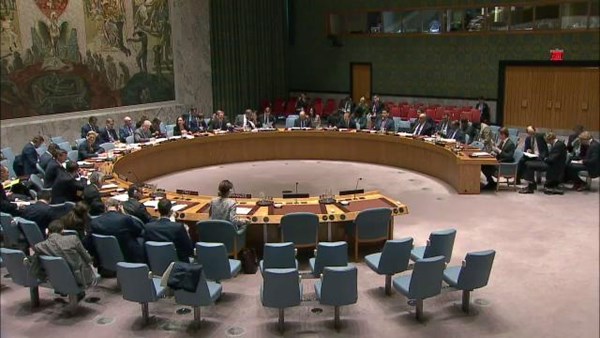Moscow warns against depriving Russia of right of veto in UN
The power of veto in the United Nations Security Council, which is held by Russia, Britain, China, the United States and France, is the cornerstone of the organization’s architecture, without which it will lose its stability, as stated by Deputy Permanent Representative of the Russian Federation to the United Nations Vladimir Safronkov at the regular meeting of the General Assembly on the issue of Security Council reform.
The diplomat noted that “ungrounded actions against the right of veto” caused “various reactions” among the UN member-states.
“Not only do they not fit into reform discussions, they also do not take into account that this institution serves as an important component of the United Nations system of checks and balances, the core element of the collective decision-making mechanism that stimulates Council members to seek compromises. Possession of the right of veto for all permanent members of the Council is not only a privilege, but, more than that, a huge responsibility. The power of veto is the cornerstone of the UN architecture, without which it would lose stability,” Safronkov said.
According to him, the agreement of all permanent members “not only allows for reaching agreements embodied in the decisions of the Council, but also provides a strong chance that they will be implemented.”
“In other words, to encroach on the right veto is short-sighted from a political point of view. Removing it can lead to the disruption of the much-needed balance of interests,” emphasized the Deputy of the Russian Federation, adding that the power of veto is one of the foundations of the existing world order.
On the issue of the expansion of the UN Security Council, Safronkov repeated the position of the Russian Federation, according to which the developing countries of Asia, Africa and Latin America should receive additional seats.
“This approach, along with the power of veto of the current permanent members of the Security Council, will ensure that the decisions of the Council will continue to be balanced,” the diplomat explained.
Intergovernmental negotiations on Security Council reform have been held since 1992, but countries have not yet come to a consensus on key issues, including the optimal composition of the UN Security Council, the number of its permanent and temporary members, and the manner in which the veto is exercised.
